#My family and I are Magical Realism protagonists
Text
short books recs (under 200 pages)
1. Sweet Bean Paste by Durian Sukegawa
This book follows Sentaro, who runs a dorayaki stall, and his friendship with Tokue, who makes killer sweet bean paste. It is a heart-warming and endearing story that brings you comfort. I love the friendship between Sentaro and Tokue, especially seeing how it develops. The ending feels a little rushed. I kind of wished it was longer. Kind of sad. I cried. 10/10 would read again.
2. Before the Coffee Gets Cold by Toshikazu Kawaguchi
The Funiculi Funicula cafe provides a time-traveling service, and the book, divided into four parts, retells different characters' experiences traveling in time. I always associate time-traveling with angst and regret, and this book has just that. I love how each part explores different relationship dynamics, so the time-traveling experience varies for each character. Very heart-warming, but very emotional as well. Cried a lot. It's a series but you don't have to read other books. But if you want more info on the cafe and the characters' backstory, then I highly recommend reading the other books.
3. Heaven by Mieko Kawakami
This book revolves around two students, who are victims of bullying. Due to their shared struggle, a friendship blossoms between them. The depiction of bullying and its impacts is raw and authentic, the story providing the perspectives of both the victims and the perpetrators. It was a rage-inducing but thought-provoking read.
4. The Travelling Cat Chronicles by Hiro Arikawa
This book follows Nana the cat as he embarks on a road-trip with his owner, Satoru. Now, cats are my absolute weakness. I love cats. I WOULD DIE FOR THEM. Which is why reading this book was hard and painful. The writing is witty, since it is written from the perspective of a cat. The plot itself is kind of predictable, but it doesn't make it any less painful. Tldr; Shredded my heart into pieces. Cried so hard, I couldn't breathe.
5. Almond by Won-Pyung Sohn
The story follows the main character, Yunjae, who suffers from a rare condition called Alexithymia that essentially makes him unable to feel emotions. Due to that, he couldn't understand social cues so people shun him. The development of the story centers on the people Yunjae are going to meet, and how his relationship with these people develops. The ending felt a little anticlimactic, but I loved it nonetheless.
6. Eartheater by Dolores Reyes
The unnamed protagonist can locate missing people and find out their fate by eating dirt, so people seek her to know the fate of their missing loved ones. It was definitely an interesting read, with elements of magical realism in relation to the protagonist's ability. It is also an intriguing depiction of femicide, a reflection of a system that continuously fails women. I felt rage for the women failed by the system and the sufferings they had to endure at the hands of hateful men.
7. A House is a Body by Shruti Swamy
This book is a collection of short stories, which is a raw and authentic depiction of what it is like being human. I enjoyed certain stories, while some left me utterly confused. The narratives are enticing and poetic, so despite some stories not hitting that hard, I enjoyed the writing.
8. The Vegetarian by Han Kang
After having a bizarre dream, Yeong-Hye declares that she is turning vegetarian, and this sudden change concerned her family. I made the mistake of thinking that this book is merely a depiction of what it's like to be a vegetarian. HELL NO. It utterly deviates from my expectation. I could only describe the book as bizarre and spooky, in an unconventional way. It depicts the complexity of the human mind when the contraint of societal expectations is disregarded.
#book#books#book review#book recommendations#book reccs#book blog#bookblr#booklr#reading#sweet bean paste#before the coffee gets cold#eartheater#the vegetarian#almond#heaven#the travelling cat chronicles#mieko kawakami#toshikazu kawaguchi#durian sukegawa#won pyung sohn#hiro arikawa#dolores reyes#shruti swamy#han kang
153 notes
·
View notes
Text
2024 Book Review #13 – Victory City by Salman Rushdie
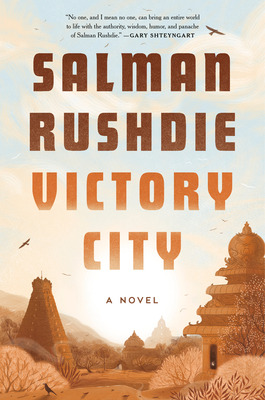
One of my goals for the year is to read more proper literature (here defined as fiction I can mention reading to my mother without getting judged for it). I’ve never read anything of Rushdie’s before, but I did remember his name in the news recently due to the whole attempted-murder thing and, happily, my library actually had a copy of his newest work. So, picked this up and read it sight unseen!
The book follows one Pampa Kampana – a nine-year-old girl who, in the 14th century, witnesses her city destroyed, and her mother burning herself alive. She is then inhabited and blessed by a goddess, blessed/cursed with a lifespan measured in centuries and the destiny of raising an empire up and seeing it fall before she dies.
The narrative is framed as a modern adaptation/summary of the epic poem recounting her life Pampa completes before finally dying, finally discovered and translated after being forgotten in the ruins of te imperial capital for centuries. The story is largely a story of this miraculous, semi-utopian empire, as told Pampa’s eyes (and with a lengthy digression during the years she spends in exile).
This is a story that exists somewhere in the muddy middle ground between historical low fantasy and magical realism – it’s in some sense an alternate history of the Vijayanagara Empire, and replete with historical trivia and references, but is quite clear from the outset that accuracy is not really something the book cares about. Instead, the book’s Vijayanagara – always written as Bisnaga, as it was translated by a historical Portuguese chronicler whose also a minor character in the story, to prevent confusion – is basically allegory and morality tale with a light coating of history for flavour.
Not that I can really begrudge Rushdie for his strident politics (as far as I can tell I basically agree with him on all of it), but this really does feel like one of those old fantastical utopias, or a political treatise that gets past the censors by pretending to be the history of a foreign country, more than it does a novel. Which could definitely work! But in this case really didn’t, at least for me. There’s enough time spent on characterization and character drama to eat up pages, but not enough for it to ever feel like they’re people and not just marionettes acting out a show. I suppose the best way to get across the reading experience is that I was reading a proper 500 page history book at the same time as I read this, and this felt like the bigger slog by far.
Though part of that might just be disappointed expectations that I really had no right to have in the first place? As I said, I had Rushdie slotted in my head as a literary author, but really I don’t know nearly enough about him or his work to justify that. So I came to this expecting to be at least a bit wowed and bedazzled by the artistry and beautiful prose on display – and like, eh? Not bad, to be sure, the narrative voice and the framing device are both fun and fairly well done. But having read it there’s really not a single passage or sequence I can say has stuck with me.
The comparison that comes to mind is Kalpa Imperial by Angélica Gorodischer, which is also a book-length epic history of a fantastical empire that never was which laughs at all conventional wisdom about pacing, characterization and plot (and which also has been shelved as magical realism for what are basically reasons genre snobbery imo). It’s been a few years since I read it, but from what I recall that agreed with me far more. Maybe just because it abandoned the conceit of a single protagonist and family melodrama entirely, or maybe because it had a bit more subtle in its social commentary (or maybe it was just better written on a sentence-to-sentence level).
Though I should say, there’s every possibility I’m being a bit harsher on this than it entirely deserves – it’s an entirely competent book! The politics are blatant but like a) they’re politics I agree with and b) they’re nowhere near the most blatant or forced-feeling inclusion of progressive politics in fiction I’ve seen recently. However, this is also a piece of writing that’s among other things very clearly and directly about how important and sublime and world-changing the art of writing is. Which is like a movie about making it in showbuisness, or a musical about how great singing is. Automatic deduction of a full letter grade.
30 notes
·
View notes
Text
The 9th House Experience Pt.1:
(Come Share My World)
Case Study: Celine
“If there's any kind of magic in this world it must be in the attempt of understanding someone sharing something.” - Celine
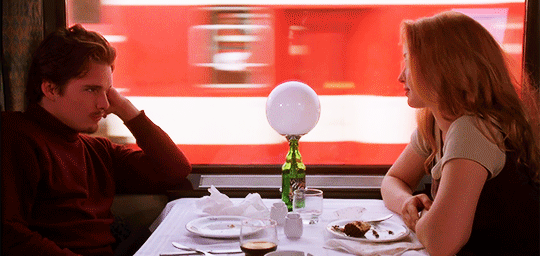
The 9th house is a very interesting house in astrology, sitting between the famous 8th House with its notoriously dark themes of the occult, transformation, ups and downs, death and the depths of sex and the 10th house, the final angular house that is representative of themes such as career, reputation, society and fame. Being wedged in between two extremely popular houses in astrology discourse, often times I find some of the depth of it slips between the cracks, in many ways like the 4th house being relegated strictly to “lighter” topics such as travel, religion and higher-learning. But being the bridge between the murky swamp that is the 8th house and the towering highs of the 10th house, its importance and depth cannot be understated.
The 9th house takes us out of our comfort zone, without it we would never open up and face our fears, and without facing our fears our dreams would never come true.
And most of all the 9th house is where we share ourselves with the world and the world shares itself with us.
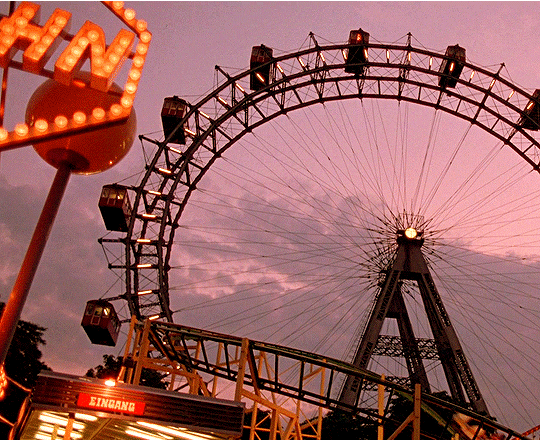
Without the 9th house all of our experiences up to the 8th house would be kept solely between our immediate circles and ourselves.
The 9th house is the bridge between our personal worlds and the world at large
In many ways I assume why, in comparison to my first two house and character case studies (Rose DeWitt Bukater from Titanic and the 8th House and Lilo Pelikai from Lilo and Stitch and the 4th House respectively) this is my first case study done on a character that I did not grow up identifying with and loving and a movie that I did not watch until I already familiar with astrology and the same age as the character i’m writing about. But the minute I first finished watching it, the first thing that came to my mind was the 9th house, and the first character to relate it to came from the female protagonist I initially misjudged (a result of my own inexperience with people of other cultures) but came to become a reflection of my own soul.
A soul that is adamant on getting out into the world and letting the world, or at least one small piece of it, back into hers.
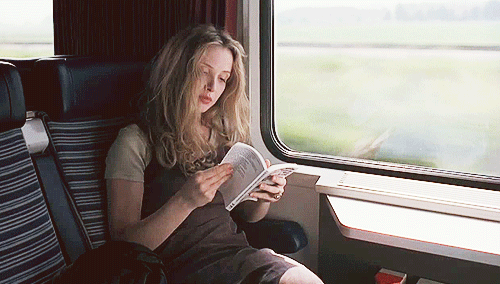
From the very beginning Before Sunrise seems to personify themes of the 9th house, opening with the main characters Celine and Jesse reading books on a train while another couple argues in a foreign language. After Jesse asks if she was able to translate what the couple was arguing about, Celine immediately presents him with a theory of of married couples losing their sense of hearing for each other, which could possibly be the reasoning for the couples’ argument. It is not the first and far from the only time in the movie where Celine expands upon abstract concepts, theories and ideas as an explanation for the world, fitting considering the 9th House rules philosophy.

In the next scene where they move to the dining car, we not only learn that she is traveling back home to Paris to continue her studies (the 9th House representing higher education) but we also get insights into her personality. She expresses her feelings towards her family and father, stating that in her passions to be a number of things (a writer, open a refuge for stray cats etc.) that can be considered abstract (the 9th house representing abstract concepts and ideas) have always been conceptualized into realism by her father who suggests more concrete career fields (a journalist, or veterinarian etc.) for her (the 10th house being 2 spaces from the 9th house, speaking to the tendency of 9th housers to feel forced to put turn their often abstract ideas and aspirations into resourceful, solid, concrete things, or in her words “practical, money making ventures” relative to the sign of Capricorn and the 10th House).
In deeper conversation with Jesse exploring their opinions on death, she admits that despite being a frequent traveller she is “afraid of death 24 hours a day,” (fitting considering the 8th house of death is 12 spaces away from the 9th house, the 12th house being symbolic of fears). In fact, her fear of death is the reason she is on the train in the first place as she could have easily flown to Paris. Despite her fears and the fact that even he acknowledges she could be a a psycho, she accepts Jesse’s invitation to accompany him in an impromptu day-tour of Vienna as the fear of missing out ultimately conquers her fear of death, as it does with many 9th housers.
The excitement of sharing the day with Jesse overtakes her fear of the unknown.
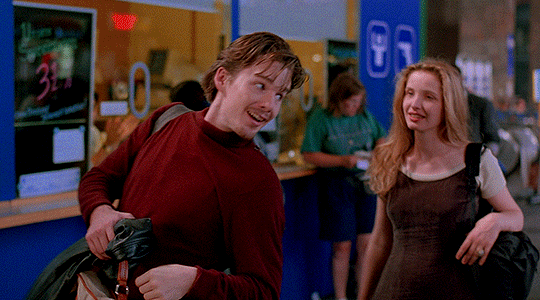
Her adventures with Jesse finally lead them out into Vienna, first taking a bus where where Jesse insists on them having a “Q&A” with each other as they have already gone over introductions. After describing the subject of her first sexual feelings of course abstractly as a “dolphin”, she goes on to answer what she hates. She mentions that she hates men on the street telling her to smile, the lack of concern about war rampaging through cities and towns all around them, the attempts of the media to control the masses, describing it as a “new form of fascism” and she hates the French stereotype being infringed upon her (particularly by Americans) for seemingly normal behavior.
In just that short sequence we are able to see two key 9th house themes in her personality, a concern for the world over especially war (Sagittarius being the sign of war) and her dislike of attempting to be controlled and defined. While 8th housers fight for self-control, control over their emotions and environments, 9th housers fight against control and for self-determination, self-definition. And in that they fight for others, they embrace conflict if it is for the truth as it is she admits it is perhaps her primary usage of her higher education when she says “maybe that’s why I’m still in school, it gives you something to fight about.” Something to be angry about.
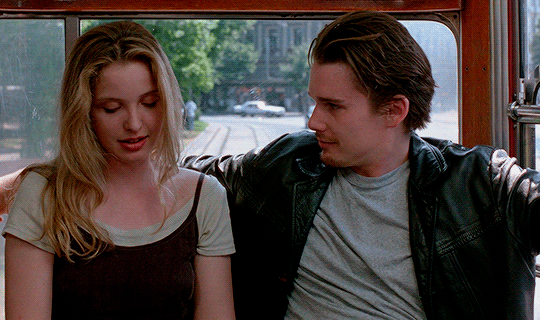
Her fear of death and penchant for self-definition also comes up when she takes Jesse to one of her favorite places she remembers from the last time she visited Vienna, the “Cemetery of the Unknown” made up deceased people that washed up from the sea a century ago. In it, she is especially drawn to the grave of a thirteen year old girl, the same age she was when she first discovered the grave. She says that with a death in which none of your family or friends knew you died “People can invent the best and the worst for you.” The 9th house, coming right after the 8th house of death. exemplifies that death can be a gateway to stories, journeys, even post-mortem.
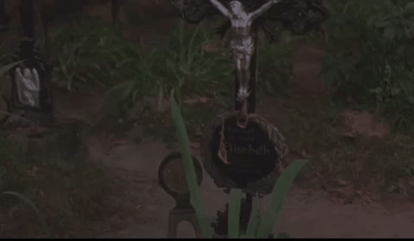
Beyond death, especially compared to Jesse, Celine is a believer.
Most of all, she is a believer in things that aren’t obvious, things that can’t be seen with the naked eye, things that aren’t spelled out easily and that can unfortunately be lost in translation very easily to those who aren’t able to read between the lines and beneath the surface very well.
Many of her beliefs in the movie can be seen directly through 9th house themes, the book she was reading at the beginning (the 9th house being the house of publishing), dissecting and assessing the arguments of foreigners (the 9th house representing foreign people and things). When night time falls her beliefs are expressed through even more 9th house themes. First it is seen by a palm reader who observes that she is “an adventurer, a seeker, she is interested in the power of the woman. In the woman’s deep strength and creativity.” Even despite Jesse’s mocking and continuous skepticism, she finds truth in what the palm reader said.
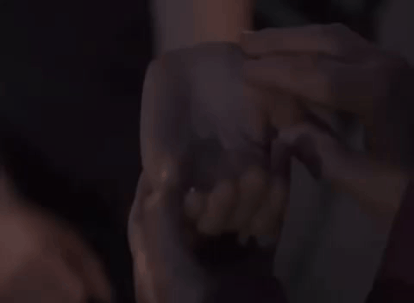
Although she is a believer we find that it can easily be turned around as like many 9th housers she is very easily believed, even when she doesn’t intend to be. In a late-night grunge bar she tells Jesse about her most recent breakup. After the breakup she told her psychiatrist or “shrink” a fictional story she wrote about a woman killing her ex-boyfriend. It turns out that the shrink actually called the police on her because something about the way she presented it made it seem so “believable”, that she was a “homicidal maniac”.
Being a believer and the power of belief can work both in the 9th houser’s favor and against them just as easily.
Finally beyond being an adventurer, a warrior and a dreamer, she is a sharer. She believes in sharing herself with the world and other people sharing themselves with her and each other.

On a surface level this earns 9th housers the reputation of promiscuity under the guise of sharing your body with others. But as with many things with the 9th house, we see that this has depth far beyond the physical as one of the only suspicions Celine does admit to is that feminism was invented by men so that “they could fool around more, free your mind, free your body, sleep with me, you’ll be happy and free as long as I can fuck as much as I want.”
She is a sexual being but her penchant for sharing goes far beyond the physical.
She tells of her love for dancing as a community function in life and something everyone can participate in. In a cathedral (the 9th house coincidentally ruling houses of worship and spiritual places), she admits that although she isn’t very religious she “can’t help but feel for the people coming there lost or in pain, guilt and shame looking for some sort of answer,” and that it is “fascinating how one thing can join so much pain and happiness, so many generations.” The bridge between the 8th and 9th house is articulated perfectly.
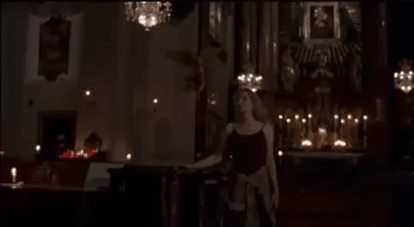
In another scene, in contrast to Jesse’s apprehension to mundanely wasting an entire life on romance, she tells the story of a old man she knew that had “worked and focused on his career his entire life and then at the age of 52 realized how lonely he was, he realized he had never given anything of himself,” another great example of the 9th house being in the blindspot of the 10th house of career.
In the 9th House both pain and pleasure, in all of their forms, are shared as crucial parts of the human experience.
Our individual tales of the human experience are meant to be shared.
In one of her most famous quotes from the movie, Celine says
“If there's any kind of magic in this world it must be in the attempt of understanding someone sharing something.”
Dreams are meant to be shared.
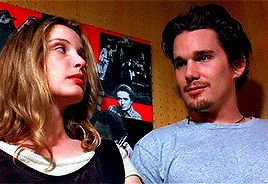
And in one of the final scenes, when dawn has broken and she and Jesse share some of their last moments together before heading back to the train station where she departs, she tells her lover of their short time together,
“Its like our time together is just ours, its like I’m in your dream and you’re in mine.”
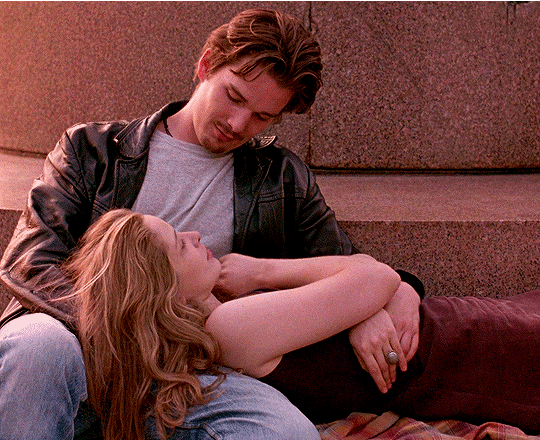
Through various conflicts, adventures, dreams and the many ups and downs of the human experience, in the 9th house we become believers and sharers, we share our world and we invite others to to share their world with us.
The 9th house is where “others” become “us” and the power of “us” can take you around the world in a day.
9th housers are warriors, dreamers, believers, adventurers and sharers, you fill in the spaces between us where God exists, where at its lows, hatred exists and at its best, love exists.
As in the words of Celine herself,
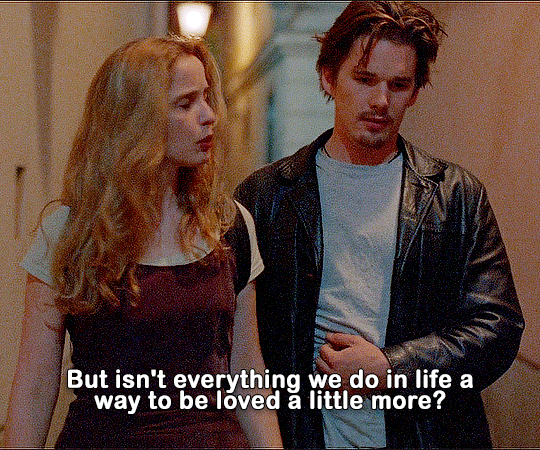
So here's to fights, friends, lovers, adventures, tragedies, fears, dreams, finding a reason to love and show love even more.
And most of all here is to sharing our worlds.
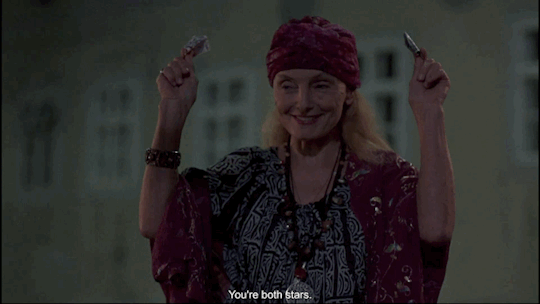
Signed, The Divine Erotic (9th House Venus)
#before sunrise#celine#jesse#character analysis#film analysis#astrology#sidereal astrology#vedic astrology#9th house#9th house venus#9th house placements
67 notes
·
View notes
Note
I like ur takes and I just wanted to share some stuff from another side. I watched spop as I was in my teen years, incredibly sheltered, queer, and lashing out because I was also dealing with abusive family dynamics. So… yeah I shipped it. I idealized it. And I heavily identified with Catra. But unlike with Zuko(who I also identify with) Catra didn’t change.
Every time she’d travel to a new part of the world I thought omg her moment is coming! Escape!! But she’d just get into a slap fight with Adora and then go back to the Horde. It was so strange it felt like every other character was in a story progression show and Catra was the villain of an episodic show until s5
And s5 was…. Weird. I don’t understand how Catra has a change of heart by getting more hurt by Horde Prime. She was getting hurt the whole series??? I still cried and was elated at the series finale but only bc I wanted an Adora who’d forgive me and love me and say I wasn’t bad. And I think a lot of people are like that.
Everything about the way Catra is framed points to her redemption even in the first episode… but it just makes me feel insulted now. To me as a survivor… it’s like they waved a magic wand and killed off the abuser and gave Catra a gf and that was supposed to fix it. It doesn’t work like that. My abuser died and it made things WORSE for a while (I think it would especially damage someone like Adora since Shadow Weaver “sacrificed” herself and therefore can’t be bad ever) . And I’m not looking for hyper realism in a Princess cartoon but at the time I watched it I couldn’t have really used yknow ?? Some guidance??? Something that wasn’t a fantasy lala ending that once the initial high wore off left me feeling confused and hollow. There is nothing in spop that teaches you how to get that kind of happy ending. Especially if you’re Catra who just says I love you and is suddenly resurrecting ponytail Jesus. To the me who identified with her, it was mostly about wanting to FEEL redeemed through her. FEELING strong and badass and GOOD and like things would be okay even if I was never a princess type. The actual result was feeling like I would never attain a happy ending of any sort because Catra’s didn’t feel real and her “arc” had no footsteps to follow in. How do you make a kids show and not teach good lessons??? Idk the show bad no matter who you identified with was my whole point.
At least I had/have zuko.
Also shipping zuko x sokka x suki is based I do too lmao.
first off, i'm so sorry about all the trauma you went through. i hope you are healing now, and thank you for sharing your story.
secondly, i think this is what a lot of fans felt. i can understand that people relate to catra. hell, even i relate to her a little. i know what it's like to be considered useless and weak, and to desperately want validation from a parent. i get it. when i say i dislike catra, it's not because she's a traumatized child or even because she adopted many of the toxic habits that shadow weaver portrayed. it's that she faced no consequences for any of this.
as much as spop tried to be mature, in the end, it was really childish. s5 got rid of all the complexity and just went "everyone deserves forgiveness", ignoring all of the glaring issues it had yet to solve. the protagonists forgave catra because the writers wanted them to, not because that's how it would have went down in real life.
most spop critics aren't heartless monsters who despise abuse victims, they are people who relate to either catra or adora. and they just want to see a better representation of abuse victims.
it would have been much more fulfilling and satisfying to have catra and adora take some time explore themselves and heal from their trauma, separated from each other. this kind of relationship is harmful for both of them. as long as adora is with catra, she'll continue blaming herself and putting pressure on herself, feeling as if she was responsible for everyone's problems. and as long as catra stays with adora, she'll continue deflecting her issues and being envious of adora. they needed time away from each other, but spop chose to invalidate trauma instead.
it's a pity that spop was one of the very few representation we had, at the time it came out, so people genuinely believe that c//a is a healthy ship, because they don't have many other examples to compare it to. i'm glad there are more and more queer shows coming out lately, and most of them seem to portray healthy relationships.
#btw ponytail jesus made me cACKLE#we should all be grateful for zuko#best redemption arc fr#spop critical#spop#spop salt#spop discourse#spop criticism#anti catradora#she ra#anti catra#abuse tw#tw abuse#tw trauma
40 notes
·
View notes
Text
can't remember where i saw the post reccing Juniper and Thorn by Ava Reid, but they were so right.
Juniper and Thorn is set in the fantasy Russia-esque city of Oblya, in the midst of change as it industrializes and draws in immigrant populations. The protagonist, Marlinchen, is the youngest daughter of the last wizard in Oblya, a man cursed to be dissatisfied with everything in his life.
It's very tightly written -- I could tell within the first few pages that this was a book to pay close attention to. Elements introduced in the first few chapters remained relevant throughout, from the beauty of the eldest sister Undine to the spiny-tailed monster under Marlinchen's bed.
Like a good Grimm fairy tale, Juniper and Thorn uses the fantastic to underscore the real. Marlinchen doesn't just live under her abusive father's thumb; she lives under his abusive, magical thumb, with all the power he can wield to control her life. His curse drives the central conflicts of the story, feeding into his consuming hunger, his relentless desire for money, his anger at his daughters, his anger with the changing world that no longer respects his magical gifts.
Juniper and Thorn contains a romance that I would compare, if anything, to the fairy-tale, Cinderella-esque story of escaping family abuse coupled with the realism that shines through the entire novel. Sevastyan, the male romantic lead, is the youngest principal dancer in the local ballet company, but he's also an ethnic minority (if Oblya is "fantasy Russia," the Yehuli people can be read as "fantasy Jewish") in an unfamiliar city and victim to abuses of a different kind. He's drawn to Marlinchen for reasons that similarly thread the line between fantasy and realism, and he's both an archetype to her (emphasized by his heroic role in the ballet) and just a hurt, lonely man who likes her.
Anyone with a close familiarity with stories is likely to be able to guess the twist, if you're paying attention, but it's a credit to Reid that even after I figured out what was coming, enough story elements were left open that I was never quite sure how it was happening until I was almost upon the reveal. When the last piece clicked into place, I actually said aloud, "Oh, there it is!" It was such a delight, like being led blindfolded by the hand and being able to trust my guide to deliver me through the woods.
Reid's world-building also stands out. It lands in perfect synchrony with the plot; the industrialization of Oblya caused Marlinchen's father to lose his standing as a great wizard, keeps their situation on the verge of poverty, and brings the temptations of the outside world that put the daughters in conflict with their wizard father. Juniper and Thorn spends only just enough time on the worldbuilding to paint a vivid portrait of local life and imply the scope of the world beyond Oblya's gridiron streets. Reid neatly avoids the temptation to over-design her world with more details than the story can use; the entire tale occurs in Oblya, so she sticks close to Oblya, to great effect.
If there's any quibble I have with Juniper and Thorn, it's in the overuse of simile in the early chapters. It's clearly meant to establish the gothic atmosphere, with striking metaphor that calls up gory or spooky symbols, but early on it seems that every other line contains such a line. While each simile and metaphor has the intended effect, taken all together they can feel over-saturated and lose their impact. This issue lightens up as the story continues, and eventually these similes become more clearly defined as part of Marlinchen's own grim and violent thoughts.
A few warnings, however; if you're sensitive to depictions of sex, gore, sexual assault, or abuse, this book may not be for you. All four appear throughout this book, and while the depictions vary in explicitness and intensity, Reid doesn't shy away from their effect on Marlinchen's psyche.
All in all, an excellent adult fantasy fairy tale! I would highly recommend this book to fans of dark fiction, especially dark fantasy, and those seeking a fairy tale with more bite.
54 notes
·
View notes
Note
If you want to, can you talk about Titane?
Are you the same person who asked about Thelma, because Titane is similarly a lot to encompass. For one, I should link to Walter Chaw's particularly detailed review, which hits on many of my own feelings.
This movie plays with technology, the human body, and gender. Your mileage may vary but to my eyes it's one of the most beautiful transmasculine movies I've seen. It's not concerned so much with realism as with abstracts, and it present body horror in the unique way many of us in the queer community find it - as alluring, arousing or enticing.
There is probably some overall artistic thesis, perhaps about the expectation of the flesh to conform to the infallibility of machine and metal, or the way in which humans become increasingly a kind of cyborg through our unceasing dependence on technology to maintain functional lives? When the movie is an intersection of a person who has sex with vehicles, a titanium plate in the skull, who commits serial acts of murder, orbits around and within masculinity in ways that include fertility and birth, whose sexuality creates another spiral of questions about attraction between people, there's so much.
It all feels of a piece and I can't quite put it into words. It flirts close to topics painful and close to transness like sexual assault and rejection by family, yet never becomes so crass as to fully exploit them. Being aware several times of sexual assault is enough to evoke the horror. Instead, these instances become places where Titane asserts control and agency, relief and joy intermingle seeing the moment transformed into something else. Much the same, as Titane becomes a stranger's son, we expect at any moment this will be torn away in a cruel revelation. Instead, when this unknowingly adopted father sees Titane's body and form are not his son, he affirms "You are my son."
The culmination of the movie is our protagonist dying while giving birth to a half machine child. The behavior of the protagonist is murderous, deceptive even. The surface readings of this don't translate into a picture of someone I would call almost a work of magic, of art. But to my mind, these are not meant to be read on a surface level. The deaths are in service to his extraction from the life that wants him bound to a socially assigned gender and purpose. They are a reclamation of his body as his own. The pregnancy and subsequent birth are not an act of destruction but a creative act of someone who has fully reclaimed his own body, whose change is in its own way ushering in another step in humanity, perhaps.
I love this movie a lot. There are movies about being transgender, sure, but not so many movies like this which evoke the feeling and spirit of being trans and being queer.
22 notes
·
View notes
Text
2022 Favourites
In no particular order. This is content I've read and watched in 2022, not necessarily content released in 2022.
Books
1. A Taste of Gold and Iron by Alexandra Rowland: m/m heroic fantasy + non-binary characters. This was one of my most expected novels of the year and I was fully satisfied with the result. One of the protagonists suffers from severe anxiety.
2. [French] L’Héritage des Rois-Passeurs by Manon Fargetton: portal fantasy with a lesbian protagonist. The French language in the secondary world is different, but I don't know if the author invented the variations or based them on something real.
3. Sword Dance by AJ Demas: m/nb historical fantasy. This trilogy takes place in a fictional world based on Ancient Greece. It's a delightful mix of intrigue and domesticity shenanigans.
4. The Hollow Star Saga by Ashley Shuttleworth: f/f and m/m urban fantasy (YA). This series about the fae also includes a touch of Greek mythology. I care a lot about all the characters.
5. Youngblood by Sasha Laurens: f/f urban fantasy (YA). This is my favourite queer vampire novel. It's an excellent mix of vampire lore, romance and mystery.
6. The Magic Between by Stephanie Hoyt: m/m magical realism. The characters have superpowers, but it's not superhero fiction. It's a fun bi4bi romance.
7. One Verse Multi by Sander Santiago: m/m/m science fiction with a trans male protagonist. This is my favourite read of the year. I loved the science in this story and how the author played with the Mandela effect (false memories shared by many people).
8. Safe and Sound by EM Lindsey: m/m romance. This is a very moving hurt & comfort novel. This author always does a great job with the intersectionality of queerness and disability, deafness and vertigo in this case.
9. If You Still Recognise Me by Cynthia So: f/f romance. This novel is about identity (queer, but also British and Cantonese) and fandom.
10. [Spanish] Anne sin Filtros by Iria Parente and Selene Pascual: f/f/m romance with a trans male protagonist (YA). This novel is also about queerness and fandom. I've read several books by these authors and this is my fave.
TV shows
1. Ancient Detective: murder mystery/wuxia with BL vibes + a non-binary character in the last few episodes. While this c-drama is mostly m/f, I appreciated the queer touches, as well as the complex plot.
2. Legend of Yunze: GL wuxia. This c-drama is a quick watch, with episodes that are only a few minutes long. What's nice is that the f/f is not very censored for a Chinese show.
3. The Lost Tomb/DMBJ franchise: adventure/fantasy with BL vibes. This c-drama franchise kept me busy for a good part of the year and I estimate that I've seen about half of it. It covers a genre that is relatively rare in Western shows.
4. Bulgasal: urban fantasy with a queer-coded villain. Sure, queer-coded villains aren't the best form of representation, but the one in this k-drama is very well-written. The reincarnation plot is fascinating as well.
5. Vampire Academy: urban fantasy with some f/f and some m/m (YA). I loved the movie way back and I'm glad that they've added queer representation to the show, even though it would have been even better if they had made the Lissa/Rose subtext canon.
6. Wednesday: murder mystery/urban fantasy with a probably a-spec protagonist (YA). This is a delightful adaptation of the Addams Family, true to the old movies.
7. Love in the Air: BL romance. This addictive Thai drama is my favourite show of the year. Payu/Rain are my fave couple, they're so playful and loving. For Prapai/Sky, there's a lot of hurt & comfort, which gave me so many feels.
8. Semantic Error: BL romance. This k-drama's protagonist is on the autism spectrum. It's enemies-to-lovers, or rather annoyances-to-lovers.
9. She Makes My Heart Flutter: GL romance. This k-drama is a quick watch. I love that it mostly focuses on sapphic friendships.
10. Heartstopper: m/m romance with some f/f and a trans girl (YA). I love the webcomic and the adaptation is really well done. It's such a sweet story.
#rec list#lgbt sff#lgbt books#sff books#lgbt tv shows#sff tv shows#mlm#m/m#wlw#f/f#non-binary#m/nb#trans male#trans female#aromantic#asexual#polyamory#fantasy#sci-fi#contemporary#historical#french#français#spanish#español
90 notes
·
View notes
Text
Reborn as a scum villain in a novel
read it on AO3 at https://ift.tt/8hcCQ0b
by Speechless_since_1998
“Why did you help me?” Clark asked, genuinely baffled.
And well, could he be blamed? Even if he was from outside, surely he too must have heard the stories about Queen's trashy adopted son, and how he was a bastard with no morals. Why would someone like that help a poor farmer?
“You needed it,” he said simply. Mentally, Bruce added, “I want you out of this city as soon as possible so I can find a way back to my world.”
The protagonist will stay for a week, barring accidents. Accidents that won't happen, because he refused to take part in that farce.
Awakening in the world of Rise of Heroes, Bruce has only one goal: to return to his world. To do this, he collects ancient powers without any concern for his own health.
Clark is more than a little worried (and attracted) to this strange man.
Words: 2197, Chapters: 1/?, Language: English
Fandoms: Batman - All Media Types, Batman (Comics), DCU (Comics), Superman - All Media Types, Justice League - All Media Types
Rating: Teen And Up Audiences
Warnings: No Archive Warnings Apply
Categories: M/M
Characters: Bruce Wayne, Oliver Queen, Dinah Lance, Clark Kent, Dick Grayson, Jason Todd, Cassandra Cain, Roy Harper, Zatanna Zatara
Relationships: Clark Kent/Bruce Wayne, Clark Kent & Bruce Wayne, Dick Grayson & Bruce Wayne, Cassandra Cain & Tim Drake & Dick Grayson & Jason Todd & Bruce Wayne & Damian Wayne, Diana (Wonder Woman) & Bruce Wayne, Selina Kyle/Bruce Wayne, Bruce Wayne & Zatanna Zatara, Diana (Wonder Woman) & Zatanna Zatara, Barry Allen & Bruce Wayne, Dinah Lance/Oliver Queen, Roy Harper & Dinah Lance & Oliver Queen
Additional Tags: Minor Character Death, Bruce Wayne is Bad at Feelings, Protective Clark Kent, Hurt/Comfort, Magical Realism, Alternate Universe - Magic, Fluff, Kid Fic, Past Relationship(s), Trash of the Count's Family Week, The Birth of a Hero (Lout of Count's Family), Isekai Another World Zine (Yuri!!! on Ice), Idiots in Love, Strangers to Lovers, Crossover, Crossovers & Fandom Fusions
read it on AO3 at https://ift.tt/8hcCQ0b
9 notes
·
View notes
Text
📚Books I'd Recommend SVT To Read: Part One
a/n: i've wanted to make something like this for some time; thank you @sadkidwarexpert for allowing me to use your idea🖤; as always, excuse any typos and please, let me know if i wrote something incorrectly.
✎Jeonghan: The Master and Margarita by Mikhail Bulgakov
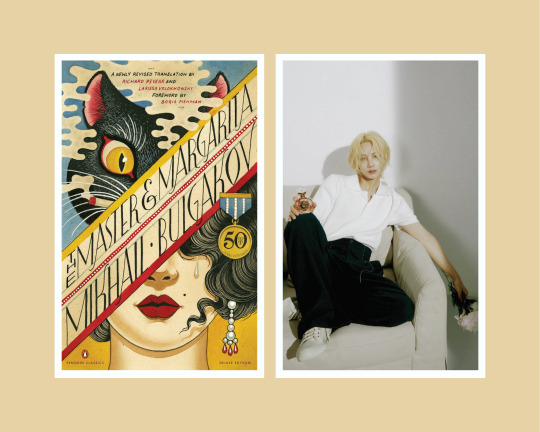
➥Genre: fantasy, satire, magical realism?
➥The book that deserves a book about it (does it make sense?). I feel this book is like "The Matrix" movie- there are so many layers to it, so much to decipher and everytime you read it, there's always something new? I think Jeonghan's mind would enjoy the challenge.
"I don't have any special talents, just an ordinary desire to live like a human being."
Bonus: Schachnovelle by Stefan Zweig

✎Wonwoo: The Erast Fandorin Mysteries Series by Boris Akunin
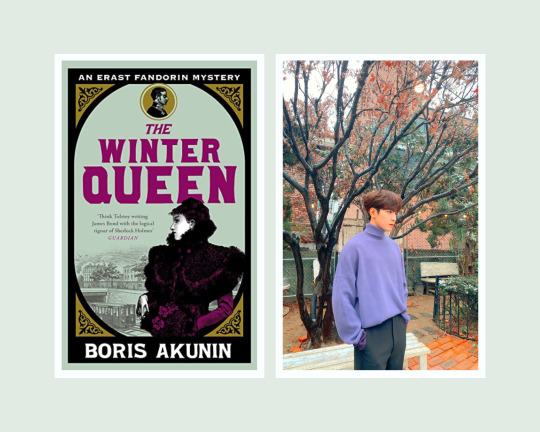
➥Genre: historical detective novels
➥I think Wonwoo would have so much fun reading about the adventures of Mr. Erast Fandorin and learn so many facts from the pages of the books. These series are such a great delight and you know the movie going on inside your head while reading? brrr
"When money is the cornerstone of everything, it is the end of genuine art! You have given me this rose and, of course, it is beautiful. But you are mistaken when you say that it is alive! It died as soon as you condemned it to this golden captivity! It was transformed into the mummified corpse of a flower! It is the same with your cinematograph. The theatre is life! And like all life, it is instantaneous and unrepeatable. There will never be another moment exactly the same, it cannot be halted, and that is why it is beautiful..."
Bonus: The Cemetery of Forgotten Books Series by Carlos Ruiz Zafón

✎DK: A Strangeness in My Mind by Orhan Pamuk

➥Genre: (historical) fiction
➥A book where various themes (such as social classes and politics) cross lines in the life of an ordinary man, that had moved into the big, tumultuous city (but being a dreamer and a discoverer isn't ordinary, right?). I loved reading this book from beginning to end and it would be a lie to say that I didn't get attached to Mevlut- its main protagonist. Mevlut, who accepts his fate while trying to decipher that enigma called life (or Istanbul, or himself. maybe all); a sentimental character who never loses his child-like curiosity, whose good heart doesn't change despite (is he just a dreamer, an idealist or simply a fool? who knows. but maybe, in the end, we are the fools).A character from which a lot valuable can be learned. I think DK would truly enjoy diving into the story and maybe would bump into a few gentle reminders (does this even make sense?)
"All the happiness and beauty that life had to offer only revealed themselves when his mind drifted off into fantasies of a world far removed from his own."
Bonus: Monsieur Jean und sein Gespür für Glück by Thomas Montasser

✎Minghao: The Architect’s Apprentice by Elif Şafak

➥Genre: historical fiction
➥A beautiful story, following the journey of a boy and his loyal companion and best friend- an elephant, into the ever-changing Istanbul . Yet, this book is so much more. If architect Sinan and his apprentices build lives through architecture, so does Minghao through music. It takes time and patience to create something and only a second to destroy it, doesn't it? I think Minghao's artistic soul will connect with the characters, more or less, and will genuinely appreciate the book.
"For apprentices everywhere - no one told us that love was the hardest craft to master."
Bonus: At the Existentialist Café by Sarah Bakewell

✎Seungkwan: When God Was a Rabbit by Sarah Winman

➥Genre: coming of age, contemporary, fiction
➥A story of growing up and losing your innocence, a story of a brother and sister, of friends and families, of learning to navigate through the mess and turmoil of the world and your own life and heal, learn, grow. I believe Seungkwan is in possession of high emotional intelligence and we know how much he loves and values his family and friends, so I think this book might hit close to home, more or less.
"Nothing stays forgotten for long, Elly. Sometimes we simply have to remind the world that we're special and that we're still here."
Bonus: The Four Million by O.Henry
65 notes
·
View notes
Text
UNDERRATED STUDIO GHIBLI MOVIE PROPAGANDA IF YOU'RE LOOKING TO WATCH A NEW MOVIE ✨️
The Wind Rises
this is on top for a reason. this is my FAVORITE ghibli film ever. it's a heartwarming story about dreams, motivation, and happiness. it's a heartbreaking story of love, loss, and sacrifice. it's historical fiction, and that touch of realism makes the characters feel like they're ALIVE and BREATHING. on the surface, it's about a kid who wants to make airplanes. underneath, it's about a man who learns of the trials of love and the laborious life of a dreamer. 11/10.
Whisper of the Heart
this movie's theme song is Take Me Home, Country Roads. and GODDAMN, DO I LOVE IT. I NEVER THOUGHT ID SAY THAT ABOUT THAT SONG, BUT SOMEHOW, IT ADDS A PERFECT TOUCH TO A COMING-OF-AGE TALE ABOUT A YOUNG AUTHOR AND HER FURRY OC. like. this movie captures teen ambition and teen cluelessness so well. the protagonist is a girl who is applying to high school, but she doesn't know what she wants to do with her life until a young boy pushes her towards writing books of her own. as a young creator, this movie captures the teen rush to be great and the game of playful crushing very well. 8/10.
(psst, there's also a WotH sequel! It's called The Cat Returns and it's based on the book that the mc writes in the first movie. happy watching)
Kiki's Delivery Service
KDS is underrated in a different way. as a ghibli movie, Kiki's is regarded as a sweet film about a teenage witch learning magic and making deliveries. and, well, that's the movie. BUT. there's so much more. if you've dismissed this movie because it's cutesy girl shit or seems bland, I recommend trying it, because this movie tackles such realistic problems as a teen and its incredible. BURNOUT. INDEPENDENCE. CARVING YOUR WAY THROUGH THE WORLD. this movie tackles burnout alone with such grace that I watch this movie (when I'm feeling burnt out) for support. 9/10.
Grave of the Fireflies
Man, I just.........I'm not even gonna go into it. It's a historical fiction about war and loss and survival and family. There's death. There's lots of death, and SAD death too. This is hurt/no comfort. There is no happy side. Only the cold hands of death. Couldn't even find this on a streaming platform, had to go to a library and rent it and dust off my DVD player for it. Good luck. 7/10.
#studio ghibli#the wind rises#kiki's delivery service#grave of the fireflies#whisper of the heart#the cat returns#ghibli#movies#animated movies
7 notes
·
View notes
Text
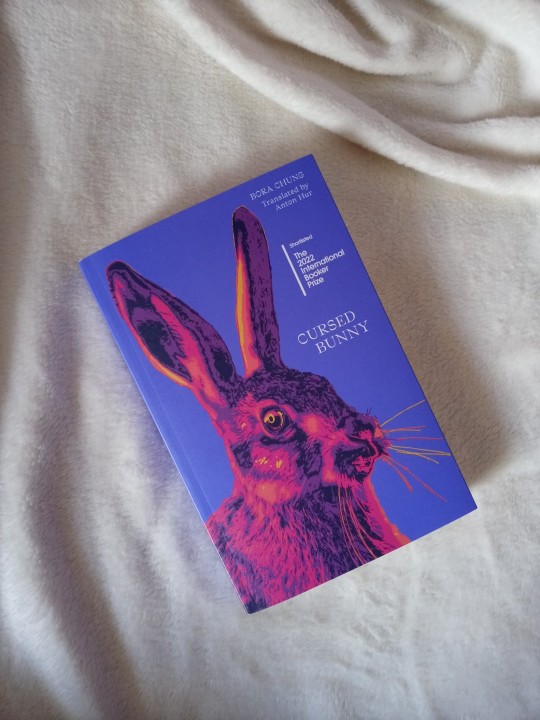
Cursed Bunny by Bora Chung
I have seen this short story collection everywhere online in the past months, and after hearing a bit about it I was quite curious. You might know short story collections are easily my favourite type of book, and I feel like they are an amzing way to get to know a new author. I had never read anything by Bora Chung, and I had never read anything by a Korean author before. The fact that this anthology has stories that fit into diffent genres is also great, because you get to see a lot of the author's potential. Since it's not always easy to talk about short stories collections I'll write a few words for each story in the book. The Head is the first short story and it definitely sets the mood. One day the main character finds a head in her toilet and this face starts talking to her, and things move from there. It was pleasently creepy, and it works amazingly as a presentation of what you are about to read, it was one of my favourite stories of the book. The Embodiement is also quite creepy as a concept, the protagonist starts have heavy problems with her period and then things excalate quickly. I feel like the characters the protagonist of this story play the biggest part in creating a very anxious and claustrophobic enviroiment. Cursed Bunny gives the name to the book and it's a really nice tale about a family who creates cursed objects, and deals in particular with one of these objects. The Frozen Finger was my favoruite short story of this collection. It works amazingly, it's creepy and then it gets worse, it's a really simple idea dealing with a car crash. It's just very well done, and it's exactly the type of story I adore. Snare, alongside with Ruler Of The Winds And Sands, feel just like fairy tales. Just like classic fairy talesthey are magical and their plot feel more bitter than sweet when reading. Although these stories are very different this tale-like vibe worked amazingly for me. Goodbye My Love is a sci-fi short story about androids. I personally feel really creeped out by the idea of highly intelligent machines, and when they look human-like things are even worse in my opinion. The idea was very simple but very well executed. Scars was my only dnf of the collection, I noramlly try to push through with short stories, but I couldn't get into the story and I really didn't care for it. Clearly it wasn't for me. Home Sweet Home is the other story that didn't work for me, I did read it until the end, but I found it predictable and way too long. It's the story of a woman buying a house with her husband, but after the purchase many things start to go wrong in her life. Reunion made me think a lot. One of its themes are traumas and how they influence people's life (and death), which was really interesting. Although it wasn't one of my favourite stories of the collection is probably the one that made me reflect the most. I wish I could say more about each story but I don't want to risk giving out spoilers. Overall I feel like this collection is very interesting, I am really happy I picked it up, and I am now very curious to read more horror by asian authors. This isn't really a horror collection, it's quite difficult to place this book in any genre as I said, there's a lot of maical realism, a bit of sci-fi, and much more. I would definitely recommend it, especially because all stories have very different feels, although they tend to be one the creepier side. I feel like anyone could find something they like in this collection.
#2022 book#book#books#reading#bookblr#booklr#book cover#pretty books#short story collection#cursed bunny#bora chung#book rec#book recommendation#book review#bookish#book blog#studyblr#studyinspo#mine#the---hermit
112 notes
·
View notes
Text
isha @cosmicrhetoric has tagged me to share 9 book recs and after racking my brains I have finally come up with 9 things that ive read & think other people should read. details under the readmore




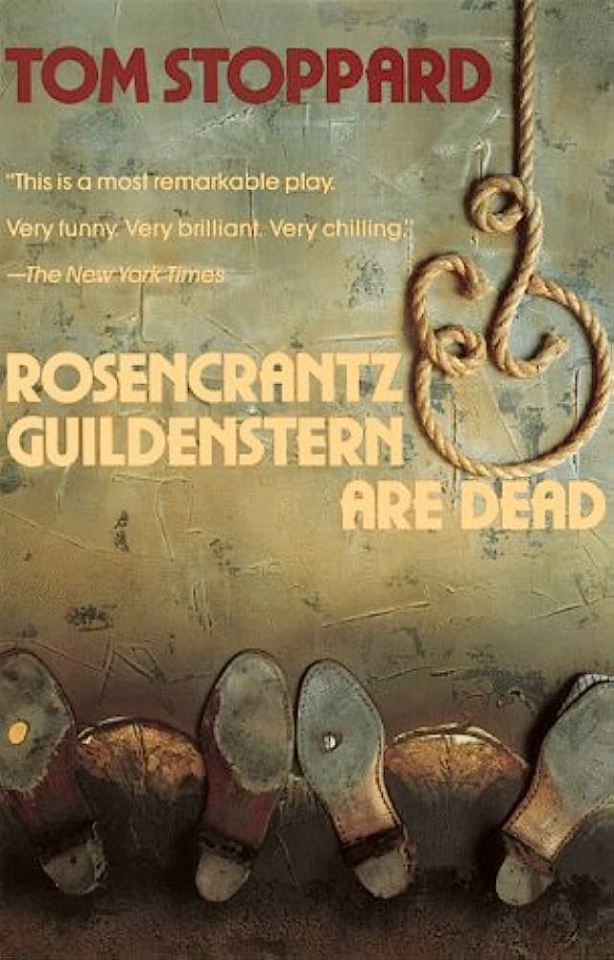
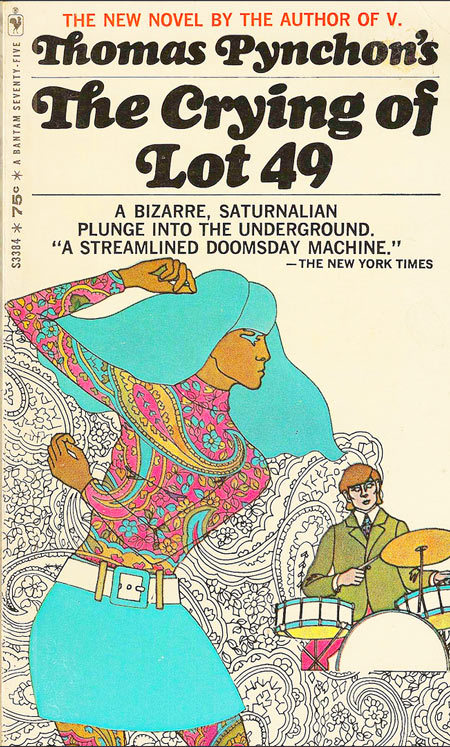

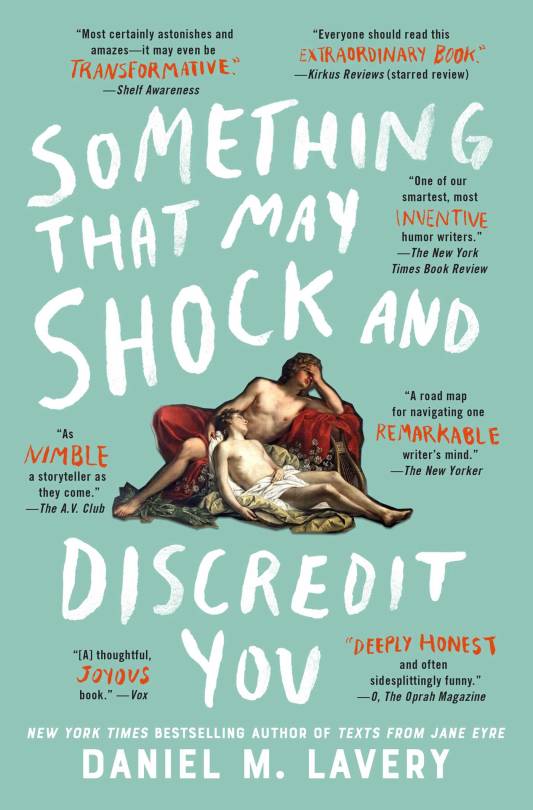

song of solomon by toni morrison: This is the first of her books that I read so while I'd recommend any of them this one is my favorite lol. it's the first novel she wrote with a male protagonist and iirc because of this she wrote it w the "hero's journey" monomyth more closely in mind. so it mainly follows the protagonist's upbringing in early 30s segregated michigan and his journey south to recover a piece of his family's history. however the story spins out to examine his whole extended family in detail and paints these really vivid portraits of their lives and how they all tie together. there's an element of magical realism to it, it's very grand in scope and equal parts awe-inspiring and tragic. I'd suggest giving it a read if only because any summary of mine is not gonna do it justice
piranesi by susanna clarke: short but gripping book about a guy who has been living in and studying an infinite labyrinth for a couple of years but has no recollection of his past or how he got there. I read this in about a day on isha's recommendation and basically couldn't put it down the whole time
quantum criminals by alex pappademas and joan lemay: essential reading for any Steely Dan enthusiasts or even the casual danfan. collection of nonfiction essays divided up by "characters" from the songs and accompanied by terrifically vivid illustrations of said characters: hoops mccann from "glamour profession", the gaucho amigo from "gaucho", etc... really well-researched and not super concerned with dissecting the "meaning" of individual song lyrics (which is fine. i have already read too much comments section discourse about who the rival from "my rival" actually is), but great at contextualizing each song in the big picture of SD's career.
a visit from the goon squad by jennifer egan: ten or fifteen short stories from varying povs and time periods, loosely centered around a music industry exec and his assistant. each story shares at least one link to the preceding one, and then near the end they get even more densely interconnected. i read this primarily because i was thinking of the elvis costello song "goon squad", and I'd heard one of the chapters was told as a child's powerpoint presentation (on "great rock and roll pauses"). as it turns out the book title's got nothing to do with the song but it's still a lot of fun to read
rosencrantz and guildenstern are dead by tom stoppard: if you are even glancingly familiar with hamlet and have not read/seen/etc. this play: RUN don't walk to get your hands on a copy asap this shit rocks. simple as
the crying of lot 49 by thomas pynchon: i get that Pynchon has a reputation but this is a great first novel of his to read. it's short plus it manages to fit in all the long tangents, postal service conspiracies, 60s paranoia, and guys with insane names that you could ever want (emery bortz is my favorite). there's a passage near the end, where the protagonist considers spreading her inheritance among the transient population of america, that mentions people sleeping up in telephone lines among "the secular miracle of communication", and I'm not really doing the whole thing justice but it's stayed with me for years after first reading.
the wall by jean-paul sartre (translated by lloyd alexander): collection of five existentialist short stories, very chilly and evocative. i was handed a copy of this as a teenager by my deadbeat uncle who solemnly informed me that the 'wall' in the title was not just the literal wall from the first story, where a group of prisoners are sent to be executed, but a 'wall' separating the protagonist of each story from the rest of society. i may not trust that uncle on most things but i do on this one
something that may shock and discredit you by daniel lavery: transition memoir from the guy who used to write for dear prudence that came along at the exact right point in my life hahahaha. but it's worth reading even apart from that lol it's got some analysis of columbo, 1979 steve martin movie "the jerk", biblical scripture, etc. mixed in, it's written in a very funny and conversational tone that works well as a whole.
monstrous regiment by terry pratchett: book that got me into discworld!! on its face it's a mulan story where a girl disguises herself as a boy and joins the army to find her missing brother. then it's a balls to the wall farce where she gradually discovers that each of her fellow soldiers has some kind of secret to hide. then it's a serious interrogation of blind faith and patriotism and the horrors of war. however it's still the other things at the same time so while all that is happening she's getting bit in the nuts by a horse and having to fake being in pain bc the horse bit a rolled up sock. also it's nice to see gay and trans characters written with tact and depth and dignity in a comedy book that came out in the early 00s
---
going to tag... @jillianajones @pastelrabbits @ringneckedpheasant @mousetrapreplica @thatfrogisbog @lavendercountry and anyone else who sees this & wishes to share book recs. as always no obligations 👍
10 notes
·
View notes
Text
Personal Review (03/26/23)

Blood Debts by Terry J. Benton-Walker
Summary
In a version of New Orleans where magic is as common as cellphones, Clement and Cristina, twins, try to unravel an old conspiracy to protect their family. Clement has always admired generational magic, but his own attempts to practice it always seem to fall short. Compared to his sister, Cristina, who excels, he seems completely inept, but Cristina has stopped practicing magic due to a spell gone wrong that she's told no one about. When the twins discover a hex doll in their sick mother's bed, they are pulled into a mystery that spans generations and could change New Orleans for good.
TW: racism, homophobia (light), child abuse, blood, institutionalization, lynching
(Sorry I’ve been gone so long! You’ve no idea how busy I’ve been!)
Plot 1 2 3 4 5 6 7 8 9 10
This was a great combination between magical realism and mystery, bringing in healthy elements of each. The magic played a real and necessary role in the story, but it never overshadowed how important unraveling the mystery was. It was also a little unique in that the question wasn't who but how and why. Clement and Cristina know from the get-go who committed the murder, they just need to prove it to the public.
I also really like the magic of this story. It felt just more down-to-earth than the sweeping, dramatic spells that typically come with fantasy. There's a lot of detail about how certain spells work and how components contribute to that, and it feels like the author is familiar with the practice, or at least did a lot of research. The take on gods and their interactions with humans is also quite refreshing. The gods are involved in human life in a way I don't often seen in fantasy, with them appearing in bars and on people's doorsteps. Still, they don't lose the power and otherworldliness that would typically be associated with a deity.
One thing that I found difficult about this book was a general lack of urgency. While there are many great scenes with good tension, the moments were Clem and Cris are just researching or talking or anything, the momentum stalls. This is mostly because while this is a very important thing to the twins, there is ultimately no time limit. They aren't trying to get ready for an event or beat the clock on a spell or anything like that. As such, the tension, which is quite good in individual scenes, is lost in the in-between moments.
Characters 1 2 3 4 5 6 7 8 9 10
Cristina and Clement are twins and share most of the narration, but they're pretty distinct in terms of personality. They have different ideologies concerning a lot of things, such as magic and morality, which generates a lot of conflict. Cristina was my personal favorite, just because I found her guilt and flexible morality quite interesting, and her arc felt complete. Not that I didn't like Clem, I just prefer my protagonists willing to commit murder, though he seems on his way by the end of the book. The way this book deals with grief is quite good, and Clem bears the brunt of it.
My favorite side character was probably Valentina. Don't get me wrong, I despised her, but I found her to be a great character with a lot of insight into the other side of things. I'm really interested to see how she develops in the next book considering what she's going through at the moment. Jean-Louise, who gets one chapter from his perspective, is incredibly complex, but it doesn't seem like we'll be getting more of him, which sucks. The other perspective side character, Zachary, can rot in hell, I don't want to see anything about him.
While I appreciated how complicated things were in Cris and Clem's family, I feel like it isn't addressed enough. Their mother and aunts have been estranged for quite a while, and while this is only the first book, Mama and Aunt Ursula have a reconciliation that seems rushed. I also feel like the only aunt I really know is Ursula—the rest are barely there.
Writing Style 1 2 3 4 5 6 7 8 9 10
The writing itself didn't particularly stand out to me. There was nothing bad about it, but nothing took my breath away either. I think there's a good balance between the more archaic, flowery writing associated with magic and fantasy and the modern, casual speech of today. There are very few pop culture references, and they are kept vague enough that it won't date the material. I think the pacing was good; other than those stalls I mentioned earlier, the build is steady and feels like a natural progression.
My major gripe is probably the style of narration, in that it has little variation. While Cris and Clem are very distinct in terms of personality, their narration is very similar. I often found myself flipping back to the chapter title to check who was speaking or checking which twin was actually getting called by their name since it was in first person. My final issue is with the texting. There is no indication as to who is sending which text, and sometimes people were double- or triple-texting, and I basically had to make educated guesses as to who was speaking.
Meaning 1 2 3 4 5 6 7 8 9 10
This book isn't as focused on modern issues as other contemporary stories are, but it by no means ignores it. Cris and Clem are Black, which affects their day-to-day lives significantly, and the backdrop of the story is filled with 'Redeemers', those who advocate for regulating magic. Gen (generational) magic is specifically a Black practice, born from necessity during American slavery. White people have their own magic, light and shadow magic, but the desire of certain white characters to be involved in gen magic plays a huge role in the story, especially how gen magic is targeted more than light or shadow.
My one issue is that I can't really pinpoint how the author wants us to feel about the Redeemers. It is an obvious issue that their efforts are the result of a long-ago murder of a white woman (that ended in a lynching) and inordinately targets gen magic. However, direct comparisons are drawn between it and gun control, which makes me inclined to support at least some restrictions, especially considering how magic is utilized for truly horrible means in this book. The characters never outright say how they feel about the Redeemers, but it seems to be mostly negative, which I am hesitant to side with.
Overall 1 2 3 4 5 6 7 8 9 10
I think this is a good book. The plot is interesting with a unique take on magical realism, the main characters are complex, and it addresses some important issues with magic as a stand-in for all kinds of cultural practices. I have my issues, mostly with the lack of urgency, narration, and unclear message, but they are by no means dealbreakers. The cliffhanger is attention-grabbing, definitely enough to get a reader to want to read the next book, and I just love Cristina so much. This book comes out on April 4th, so be sure to give it a shot!
Thank you to NetGalley and the publisher for a digital advanced reader copy in exchange for a fair and honest review.
The Author
Terry J. Benton-Walker: American, also wrote Alex Wise vs the End of the World and The White Guy Dies First
The Reviewer
My name is Wonderose; I try to post a review every week, and I do themed recommendations every once in a while. I take suggestions! Check out my about me post for more!
#books#reviews#blood debts#terry j benton-walker#fantasy#ya#magical realism#black mc#black author#lgbt mc#lgbt author#twins#voodoo#cultural practices#new orleans
15 notes
·
View notes
Text


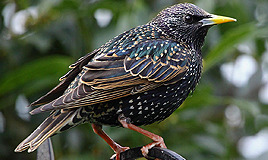
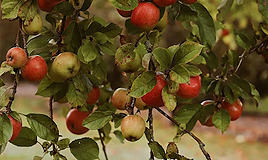


Spells for Forgetting by Adrienne Young
Published: September 27, 2022
Publisher: Delacorte Press
The Author
Adrienne Young is the New York Times and international bestselling author of the Sky and Sea duology, the Fable series, and Spells for Forgetting. When she’s not writing, you can find Adrienne on her yoga mat, on a walk in the woods, or planning her next travel adventure. She lives and writes in the Blue Ridge Mountains of North Carolina.
˗ˏˋ ´ˎ˗
The Story
Spells for Forgetting is a deeply atmospheric story about ancestral magic, an unsolved murder, and a second chance at true love.
Emery Blackwood’s life changed forever the night her best friend was found dead and the love of her life, August Salt, was accused of murdering her. Years later, she is doing what her teenage self swore she never would: living a quiet existence on the misty, remote shores of Saoirse Island and running the family’s business, Blackwood’s Tea Shoppe Herbal Tonics & Tea Leaf Readings. But when the island, rooted in folklore and magic, begins to show signs of strange happenings, Emery knows that something is coming.
˗ˏˋ ´ˎ˗
The Vibe: remote island, secretive villagers, magical realism, autumnal atmosphere, omens in nature, everyday magic, deep betrayals, small town, secrets everywhere
The Style: breadcrumb murder mystery, standalone, multiple POVs, flashbacks, character driven
Trigger Warnings: child abuse, domestic abuse, murder, sex
˗ˏˋ ´ˎ˗
The Review
When I hear that a book is “deeply atmospheric”, containing a story infused with ancestral magic and folklore, I’ll instantly add it to my TBR. I can’t help myself. I think I’m still desperately trying to find my next Practical Magic; a book whose prose perfectly evokes the sort of magickal world I want to run away to. I’d been looking forward to reading Spells for Forgetting since I first read the summary, and finally found myself getting lost in the mystery this past week.
Our protagonist is Emery, who, in her thirties, owns Blackwood’s Tea Shoppe, a family business that has been handed down through generations and is a responsibility that she never wanted. Emery lives on Saoirse, a remote island just off Seattle; a place that is saturated in ancestral magic (and feels very much like it would exist in the Practical Magic universe). What I loved about Saoirse is that magic isn’t a secretive, shameful thing that one family is “cursed” with and that the townspeople fear; magic is a part of everyday life on the island. Families own grimoires containing spells passed down the generations, characters provide magical first aid using plants and herbs, and they celebrate sabbats. (This book gets bonus points from me for mentioning more sabbats other than Samhain- Imbolc and Beltane also get a shout out!)
“There was a whisper in the air when I lifted the lid on the box. For a moment, I thought it was some kind of warning, my mother touching the veil of the Otherworld in a last plea from her to let the past go.”
Emery was part of a small friend group as a teen on the close-knit island, which included her first love, August Salt, her best friend Lily, and Dutch, who is now her partner. Emery and August’s relationship was super peachy until a terrible event swept Saoirse one night, causing August to flee mysteriously without so much as a goodbye. Now, he has to return to the island one final time and old wounds are reopened.
One choice Young made which I really appreciated was that Emery and August are not teens or in their early twenties; they are very firmly in their thirties and it’s a demographic that I find isn’t represented massively in literature like this. (Can you tell I’m the same age as them?)
Spells for Forgetting is written from multiple perspectives, including Emery, August, various famiy members and at one point even the island itself (an idea that I absolutely loved). I particularly enjoyed chapters involving Aunt Albertine, who provides some lovely blindness representation. The island of Saoirse is also beautifully fleshed out; it really feels like it could exist out there somewhere off the coast of Seattle. It becomes a central character of the novel whose moods you can read as well as the human cast members.
“The island had been restless all day, the air growing colder. Since the leaves had turned, nothing had felt right, and I had a feeling there was a deeper work at play. Saoirse was finally digging up the things we’d buried.”
The magical realism element in this novel is super enjoyable and was probably my favourite part of the book all around. I also found it interesting that for the majority of the narrative the plot could have been a straight up drama without any inclusion of magic at all; it was nice that it felt like magic was a part of the lore without it mattering to the story, but then it becomes more obvious that it is intrinsically linked as the mystery is revealed.
As the plot is told from multiple POVs, the chapters are short which allows you to take in the story in bite-sized chunks if needed. (This can also cause an “I’ll just read one more chapter… and another one…” situation as each breadcrumb of the mystery is dropped.) Unfortunately, the flow of the writing did trip me up a few times, I’m not quite sure why, as the prose is really very simple, and while I don’t dislike first-person perspectives, when they are also split into multiple character POVs I find that most writers struggle to create individual voices, which was the case with this book.
Honestly, I’m not a huge fan of romance stories, but inevitably this is a central theme of the novel as Emery tries to get to the bottom of the abrupt end to her relationship with August. A slow-burn, kind-of-enemies to lovers theme makes absolute sense as Emery revisits the past in order to discover the truth of what happened the night August left, but honestly, Emery and August are a little bit cringe; the writing gets pretty over the top when demonstrating the strength of their relationship as it reignites; “She was so beautiful that I could hardly stand to look at her. It physically hurt to feel her skin under my fingertips.” That’s just a little over-dramatic, right? I found myself zoning out whenever they spoke about each other.
“I’d been in love with August Salt since before I knew what the words meant. I don’t know when it happened - the narrow space between seconds, when a spark like the birth of a hundred stars found a home in my blood.”
Full Disclosure: There are some spicy scenes in the novel, and while Spells for Forgetting is suitable for a teen audience, I did find the juxtaposition between YA writing style and adult themes was a bit jarring at times.
Overall, I really enjoyed spending time on Saoirse, and would definitely pick up a sequel if one should appear. (The book is currently a stand-alone, but I feel like the ending left enough open, while resolving the main plot points, to allow for a return to the island.) A simple writing style, intriguing plot and fantastic setting make this one worth picking up.
Rating: 🌕🌕🌕🌗🌑
[Goodreads]
#book review#bookblr#reading#books#witch fiction#witches#witchy#witchblr#Spells for Forgetting#Adrienne Young#witchy books#witchcore#witchy vibes#witch
2 notes
·
View notes
Text
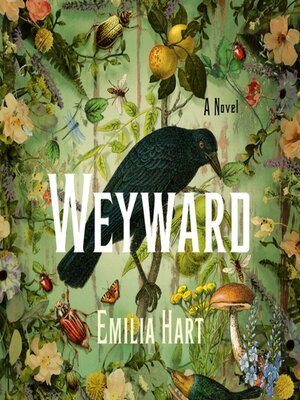
Weyward. By Emilia Hart. St. Martin's, 2023.
Rating: 3/5 stars
Genre: historical fiction, magical realism
Part of a Series? No
Summary: 2019: Under cover of darkness, Kate flees London for ramshackle Weyward Cottage, inherited from a great aunt she barely remembers. With its tumbling ivy and overgrown garden, the cottage is worlds away from the abusive partner who tormented Kate. But she begins to suspect that her great aunt had a secret. One that lurks in the bones of the cottage, hidden ever since the witch-hunts of the 17th century.
1619: Altha is awaiting trial for the murder of a local farmer who was stampeded to death by his herd. As a girl, Altha’s mother taught her their magic, a kind not rooted in spell casting but in a deep knowledge of the natural world. But unusual women have always been deemed dangerous, and as the evidence for witchcraft is set out against Altha, she knows it will take all of her powers to maintain her freedom.
1942: As World War II rages, Violet is trapped in her family's grand, crumbling estate. Straitjacketed by societal convention, she longs for the robust education her brother receives––and for her mother, long deceased, who was rumored to have gone mad before her death. The only traces Violet has of her are a locket bearing the initial W and the word weyward scratched into the baseboard of her bedroom.
Weaving together the stories of three extraordinary women across five centuries, Emilia Hart's Weyward is an enthralling novel of female resilience and the transformative power of the natural world.
***Full review below.***
Content Warnings: domestic violence and abuse (physical, verbal, emotional, financial, and reproductive), blood, self-harm, racism, rape and impregnation of a teenager, suicidal ideation, abortion
Overview: I didn't know much about this book going in, but I do remember seeing it on display at my local bookstore, so I figured I'd give it a go. The premise itself seemed like something I'd be into: multiple generations of women, nature, magic, and the power of female resilience. Unfortunately, I didn't find the execution as inspiring as I'd hoped. In my opinion, this book struggles with a little bit of everything (plot, prose, and character), though as a whole, it wasn't so poorly done that I would say the author is dropping the ball. Rather, this book has a strong premise but struggles to engage with the reader, so for that reason, it gets 3 stars from me.
Writing: While I did like Hart's use of figurative language and the ease at which sentences flowed into one another, I had a hard time connecting with the prose because, in my opinion, it's just a tad overwritten. Hart doesn't leave much room for the reader to infer things, and both emotions and interpretations are told to us rather than shown. As a result, the pace of this book can feel rather slow, especially in the beginning when we're being instructed how to interpret things.
Moreover, I didn't quite enjoy the way the chapters were organized. This book is divided into 3 perspectives, with each chapter switching between protagonists Violet, Altha, and Kate. In my opinion, the chapters were a bit too short and were cut off prematurely; it felt like Hart was trying to create suspense, but rather than feeling intrigued, I felt frustrated. Perhaps this could have been alleviated if each chapter had a stronger point that led into the next POV; for example, there's one chapter that is dedicated entirely to Altha entering the city for her murder trial, and the whole chapter is devoted to describing the journey, only to be cut off awkwardly at the thought of an unknown character named Grace. To make the chapter stronger, I would have loved to read more about the rural/urban juxtaposition within Altha's POV, and have that relate to the rural/urban juxtaposition that Kate experiences when she flees to the Weyward cabin. Granted, there may be a little of that, but if it does exist, it doesn't feel intentional on Hart's part.
Plot: The plot of this book follows three women from the Weyward family line: Altha (a woman on trial for murder and witchcraft in 1629), Violet (a viscount's daughter coming of age in 1942), and Kate (a woman fleeing an abusive relationship in 2019). The three storylines explore female resilience as each character struggles to assert agency in the face of patriarchy.
Personally, I felt that each storyline was a little dull. Hart seemed to be trying to create suspense and unease by teasing that the women are somehow related and that their bloodline has some eerie natural power. I put things together faster than our protagonists, and the relationship between them wasn't necessarily new or presented in a way that made things feel fresh. On top of that, rather than exploring the character's emotions and inner lives, I felt like I was being asked to take them for granted and focus on the more mundane actions. For example, Kate leaves her abusive ex at the beginning of the book only to spend the rest of her arc doing mundane things. Altha is incredibly passive for the first half of her story, as we are stuck watching the trial rather than seeing her do much of her own will. Violet is a tad more interesting in that she spends a lot of time trying to learn more about her deceased mother while also trying to avoid the wrath of her abusive father, but even her arc felt a little slow at times.
I think what bothered me the most about the plot was that the book as a whole was supposed to be about "resilience," but most of what happens isn't particularly inspiring. It's not that I wanted big, overt displays of heroism, but I felt like the quiet moments of heroism were buried under the attempts at suspense.
Lastly, I felt like the magical realism was incredibly underutilized. Hart establishes that the Weyward women have a special connection to nature, but thematically, I didn't feel like there was a strong connection between nature and feminine agency. Ecofeminism is a popular topic in current critical discourse, and integrating it into this book would have elevated it immensely. Instead, it felt like nature was a background character, only popping up when convenient.
Characters: This book contains a number of characters, but for this review, I will focus on the three POV protagonists.
Altha, the healer/witch living in 1619, felt rather passive, especially during the trial. When we meet her, she has already been arrested, and I felt like we didn't get to know her until after the trial. As a result, I had a hard time being invested in her fate. Even when we learned more about her, there wasn't much that set her apart from other healers/witches I've read, so I found her arc to be hard to care about.
Violet, the viscount's daughter living in 1942, was a bit more interesting in that she was striving for things. Violet not only dreams of being an entomologist, but she also desperately wants to know more about her deceased mother. The most interesting parts of her arc were when she was actively trying to seek out information, and I liked that despite the hold her father has on her, she was always trying to assert herself and find her own power. There were times when her arc slowed down, so it wasn't perfect, but I found Violet to be the most interesting of the three women.
Kate, the woman living in 2019, had some quiet moments of agency, but overall, I felt like I was watching her going about her new life in a small village. Kate leaves her abusive boyfriend at the start of the novel and hides out at Weyward Cottage - the hovel that belonged to her great aunt. I enjoyed the moments when Kate did things like cut her hair and change her wardrobe; those felt powerful and meaningful, like she was finally freeing herself from her boyfriend's grasp. But most of her arc seemed to just be about her doing mundane things, and I wished more time was spent on exploring Kate's healing process.
TL;DR: Weyward is a novel with a good premise, but ultimately doesn't present readers with anything new or interesting. Between a prose style that relies too much on telling, a plot that forges "resilience" in favor of brutality, and characters without much agency or goals that they strive after, this book is a disappointing attempt to portray female power.
6 notes
·
View notes
Note
[[ 16, 17, and 18 for the munday meme! ]]
Munday Meme: Some questions to get to know the mun’s rping habits | Accepting
16. Favourite trope?
Oh, I don't know... maybe it's bad but I never have any introspection about stuff like this. Or at least I don't when I get asked. I don't know what characters I gravitate towards (beyond "something is deeply wrong with this person", that's usually a shoo-in and is why I gravitated to Porky and Claus, for example, or like, autistic-coded characters), or tropes either.
I like the loser protagonist trope, maybe? It's not my favorite, I don't know, but I think it's interesting. There is a very fine line with it, and it can definitely be done super wrong, but I think it's neat examining pathetic characters if there's sufficient complexity in them. You know that's a thing for me considering SOBR, lol.
I guess I also like whatever you'd call the real world with minor fantasy elements-- it's not necessarily magical realism, because that implies that magic is completely normal within the real world. Sometimes, I like magic/fantasy elements being a thing that exists but people don't really know about it.
17. Least favourite trope?
Oh, I also don't know KRHF. I guess I don't really like one-dimensional characters. A villain can be super evil, but I still like to see more to them than that. They don't have to be sympathetic or justifiable, I would just like to see more, I guess. Same with perfectly good characters. The only Perfect and Amazing protagonist allowed is Beowulf lol. But it's more interesting when there's complexity going on!! I know it's a basic answer, but still.
18. Are there any AU’s you’d like to explore but haven’t had the chance to yet?
Yeah! A couple. One AU I've had around for a while is what I was referring to as an Earthbound AU for the Tazmily... basically Tazmily existing during the same time as Earthbound as like, some rural town in Texas or some shit. It was another form of modern verse, but obviously not wholly modern since it'd be in the 90s. I think the plot was Hinawa and Claus would get abducted by aliens, and Lucas would set out in hopes of finding them, basically.
That'd be the fun plot, but I also have it just as a fun slice of life plot for Tazmily in the modern world. It'd be neat, because it'd give the villagers a chance to have bonds with their biological families, and have them fold in to the dynamics that already exist in Tazmily... or see how people living with their bio families would change Mother 3's family dynamics in some cases. I could talk about that extensively since I've fleshed out a lot of the villagers' families but I'll spare you for now. Maybe another time.
3 notes
·
View notes